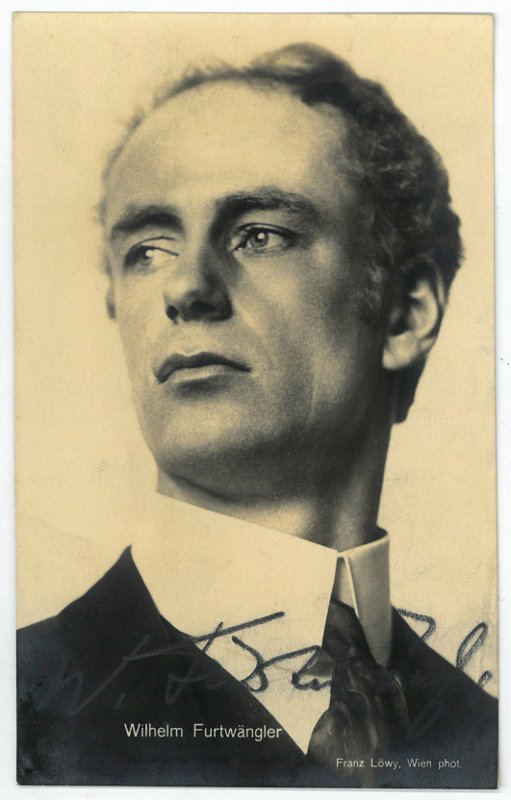
Wilhelm Furtwängler
Wilhelm Furtwängler was a prominent German conductor and composer, best known for his long tenure with the Berlin Philharmonic Orchestra. His interpretations of classical repertoire, particularly of Beethoven and Bruckner, are celebrated for their depth and expressiveness. Furtwängler navigated the complexities of the Nazi regime during his career, leaving behind a significant legacy in the world of classical music.
Born on Jan 18, 1886 (140 years old)
Global Media Ratings
Countries Mentioned
No country-level mention data available.
Interactive World Map
Each country's color is based on "Mentions" from the table above.
Recent Mentions
 Switzerland:
Wilhelm Furtwängler is noted for using his position to help persecuted musicians during the Third Reich.
9
Switzerland:
Wilhelm Furtwängler is noted for using his position to help persecuted musicians during the Third Reich.
9
 Austria:
Wilhelm Furtwängler was a conductor who expressed frustration after a concert in Stockholm.
5
Austria:
Wilhelm Furtwängler was a conductor who expressed frustration after a concert in Stockholm.
5
 Tunisia:
Wilhelm Furtwängler believed in allowing music to be born rather than directing it.
8
Tunisia:
Wilhelm Furtwängler believed in allowing music to be born rather than directing it.
8
 Romania:
Wilhelm Furtwängler is noted as a significant conductor, mentioned alongside Sergiu Celibidache.
9
Romania:
Wilhelm Furtwängler is noted as a significant conductor, mentioned alongside Sergiu Celibidache.
9
 Spain:
Wilhelm Furtwängler conducted notable performances of Gustav Mahler's works featuring Dietrich Fischer-Dieskau.
9
Spain:
Wilhelm Furtwängler conducted notable performances of Gustav Mahler's works featuring Dietrich Fischer-Dieskau.
9
 Greece:
The Berlin State Opera has hosted some of the greatest conductors in music history, including Wilhelm Furtwängler.
9
Greece:
The Berlin State Opera has hosted some of the greatest conductors in music history, including Wilhelm Furtwängler.
9
 Switzerland:
Wilhelm Furtwängler conducted Dietrich Fischer-Dieskau during the Salzburg Festival.
7
Switzerland:
Wilhelm Furtwängler conducted Dietrich Fischer-Dieskau during the Salzburg Festival.
7
 Hungary:
Wilhelm Furtwängler is discussed in relation to his conductorship during the Nazi regime.
5
Hungary:
Wilhelm Furtwängler is discussed in relation to his conductorship during the Nazi regime.
5
 Spain:
Wilhelm Furtwängler was the predecessor of Herbert von Karajan at the Berlin Philharmonic.
7
Spain:
Wilhelm Furtwängler was the predecessor of Herbert von Karajan at the Berlin Philharmonic.
7
